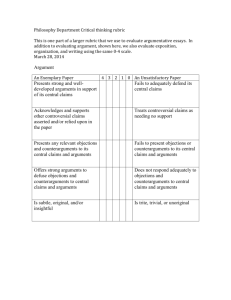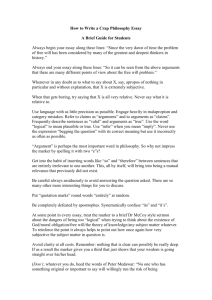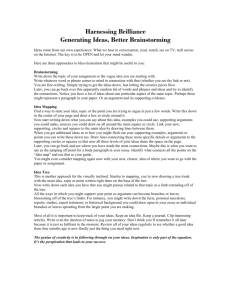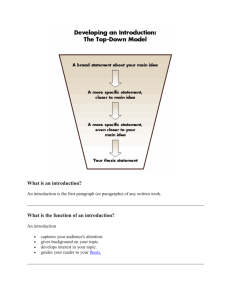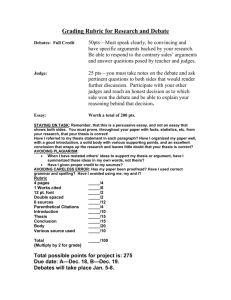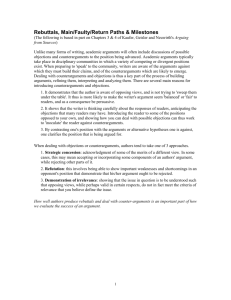Notes for Future syllabi
advertisement
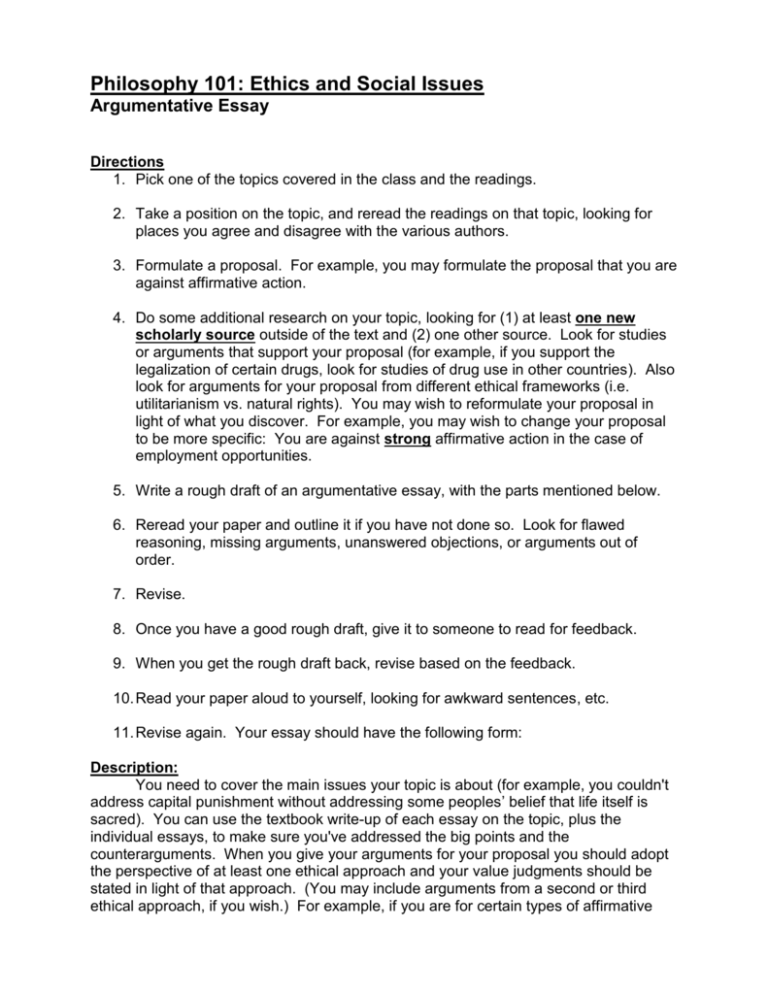
Philosophy 101: Ethics and Social Issues Argumentative Essay Directions 1. Pick one of the topics covered in the class and the readings. 2. Take a position on the topic, and reread the readings on that topic, looking for places you agree and disagree with the various authors. 3. Formulate a proposal. For example, you may formulate the proposal that you are against affirmative action. 4. Do some additional research on your topic, looking for (1) at least one new scholarly source outside of the text and (2) one other source. Look for studies or arguments that support your proposal (for example, if you support the legalization of certain drugs, look for studies of drug use in other countries). Also look for arguments for your proposal from different ethical frameworks (i.e. utilitarianism vs. natural rights). You may wish to reformulate your proposal in light of what you discover. For example, you may wish to change your proposal to be more specific: You are against strong affirmative action in the case of employment opportunities. 5. Write a rough draft of an argumentative essay, with the parts mentioned below. 6. Reread your paper and outline it if you have not done so. Look for flawed reasoning, missing arguments, unanswered objections, or arguments out of order. 7. Revise. 8. Once you have a good rough draft, give it to someone to read for feedback. 9. When you get the rough draft back, revise based on the feedback. 10. Read your paper aloud to yourself, looking for awkward sentences, etc. 11. Revise again. Your essay should have the following form: Description: You need to cover the main issues your topic is about (for example, you couldn't address capital punishment without addressing some peoples’ belief that life itself is sacred). You can use the textbook write-up of each essay on the topic, plus the individual essays, to make sure you've addressed the big points and the counterarguments. When you give your arguments for your proposal you should adopt the perspective of at least one ethical approach and your value judgments should be stated in light of that approach. (You may include arguments from a second or third ethical approach, if you wish.) For example, if you are for certain types of affirmative action you might want to explain how Rawl’s theory of justice would support those types of affirmative action. Look in the table of contents for directions on an argumentative essay. Most papers in moral philosophy are thesis papers, that is, papers written to defend a thesis. You should present a thesis and provide arguments and evidence to support that thesis. You should also anticipate and address some counterarguments to your view, making sure to include what your response to these counterarguments would be. The parts of your arguments should be clear. That is, it should be clear what evidence (premises) you are providing to support your proposal. It should also be clear what value judgments underlie the proposal you are making. Your essay should have, at least, the following parts: Introduction (state main thesis and outlines paper) Presentation of the arguments Presentation of the objections or counterarguments Response to the objections or counterarguments Conclusion A bibliography Format: Your essay should be 9-11 pages in length. You should use a legible size 12 font and your margins should be no greater than 1 ¼ inches each. Your pages should be numbered (without your name on each page). Your paper should be double-spaced and printed on letter-size paper. Include a title page with your name and do not put your name on the remaining pages of the essay. Cite your sources using APA or MLA format, making sure to include page numbers for direct quotes. Keep a back up copy of your paper.
